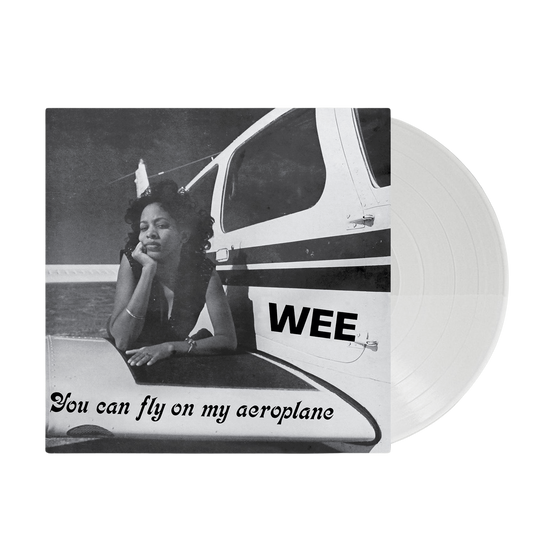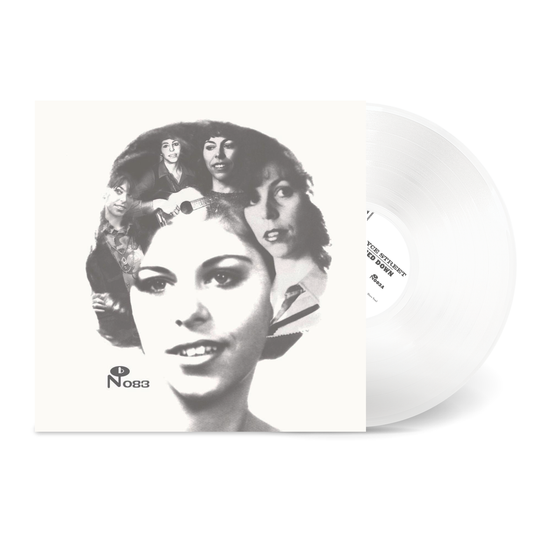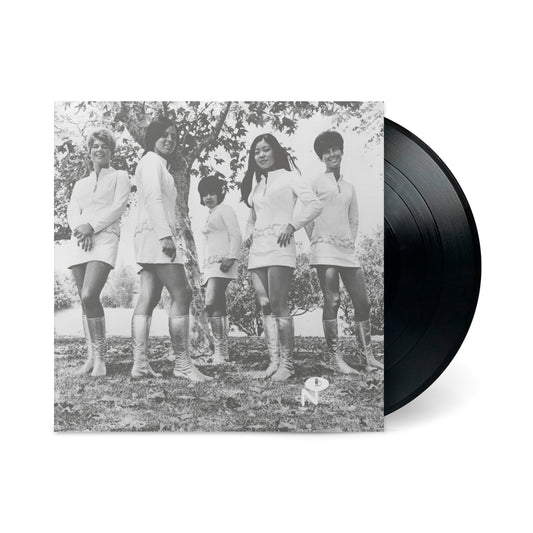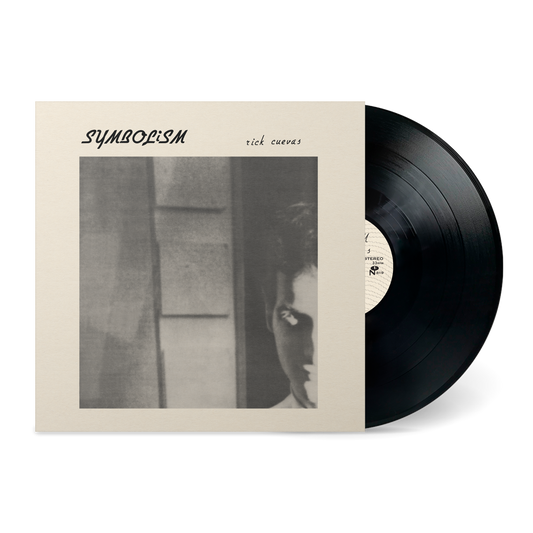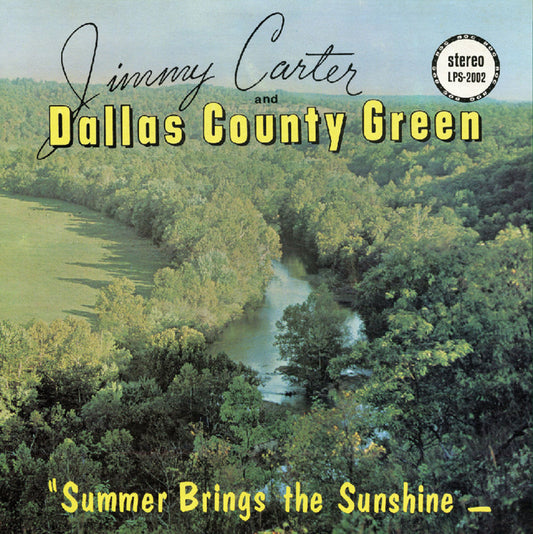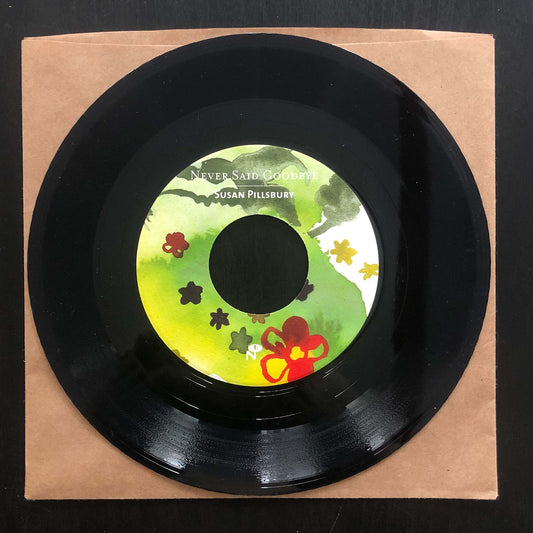It used to take more than a Distrokid account and cracked version of Ableton to get your music into the world. Back in the Before Times, an artist had two choices when it came to releasing an album: convince a record label or call the local pressing plant. Tens of thousands of would-be entrepreneurs chose the latter option, resulting in an unlikely and unassociated underground universe of self-released LPs. But recording and pressing your records was only half the battle—without proper distribution or steady gigs, most of these artists had no way to reach the public, and the lucky few with radio connections had a slim chance of earning playtime without Top 40 promotion money greasing radio jocks’ palms. Since most of these lone LPs yielded little to no payoff for artists, their final destinations were often limited to the immediate locales and isolated scenes in which their creators resided, where pop influence waned and producers, focus groups, and hired songwriters were naught.
With most calling it quits after one record and destroying or relegating their pressings to basements and attics for decades, many albums from this early incarnation of DIY have become highly sought after by crate diggers and snobbish music hunters looking to find only the obscurest takes on popular culture (ourselves included). Numero began our foray into the private press world with 2006's Wayfaring Strangers: Ladies From The Canyon, a compilation designed not to pull the “best” of “hits” a la K-Tel Comps in the “Now That’s What I Call Music” plastic mold but rather the best of the misses. Here we examined 13 coffeehouse strummers and church picnic hummers inspired by Joni Mitchell's introspective brand of siren song. The Wayfaring Strangers series has since grown to include volumes of Leonard Cohen-like loners, John Fahey-esque fingerstyle freaks, and Gram Parsons-aping country rock plastic dry-fucks. Each of the Wayfaring Strangers explores a particular strain of American mimicry, yet all are unlike anything you’ve ever heard before.
Several stand out albums from those compilations have found their way to not-so-private pressings on Numero over the years. Shira Small’s Quaker boarding school senior project The Line Of Time and The Plane of Now and our Caroline Peyton compact discs both spun out of Ladies From The Canyon, while Cosmic American Music alone added five classics to the Numero canon from Jeff Cowell, Jimmy Carter, Sandy Harless, Allan Wachs, and Kathy Heideman. Chuck Senrick’s 1977 home demo Dreamin’ was mined for both Private Yacht and Whispers. Tony Palkovic’s Nintendo jazz ripper Born With A Desire was heard first on Escape From Synth City and then Nuleaf. Spontaneous Overthrow, Jeff Phelps, and Otis G. Johnson are direct descendants of Rob Sevier and Dante Carfagna’s genre-making electronic soul masterpiece Personal Space.
Both derided and celebrated for their oft-times crude and homemade covers, these Private Press albums live at the nexus of outsider art and limited ambition, the common denominator being their unfiltered passion and true authenticity. Whether it’s Master Wilburn Burchette creating his own distribution system for his mail-order meditations or Jimmy Carter sourcing his band from local farmhands, these musicians made do with what they had, and got it done. We’re excited to finally get their “Real People” records into the hands of the rest of the world so that we might all enjoy these glimpses into the myriad hidden worlds that are living right next door.
Numero's Private Press Collection:

The rarest Chicago sweet soul LP, back in print for the first time in half a century.
Dreamed up in the basement of his Bronzeville harem/headquarters, Arrow Brown's peerless The Magic of The Majestic Arrows album was the by-product of years operating at the fringe of Chicago's storied Record Row. Issued on his own Bandit imprint, the LP is a string-laden fantasia straddling the street corner doo-wop of the '50s and the Me Decade's studio excess. Backed by the Chosen Few and the Scott Brothers, arranged by Benjamin Wright, sung by Brown's 17-year-old daughter Tridia and Moroccos falsetto Larry Brown, and drawn by The Wind's Eugene Phillips, the album is an outsider D.I.Y. soul genie awaiting the rub of a phonographic needle to reveal its immortal sorcery. Be careful what you wish for.

Wee: You Can Fly On My Aeroplane
Scoring the lives of small-time players, pimps, junkies, and prostitutes lurking around his simultaneously blessed and cursed existence, Wee mastermind Norman Whiteside lived in an entirely different Columbus than Capsoul’s Bill Moss or Prix’s Clem Price. Alternating between Stevie Wonder’s dreamy soul and Sly Stone’s druggy groove, You Can Fly On My Aeroplane bypasses Whiteside’s everyday gritty street life reality, focusing instead on the airy sounds of fantasy and masquerade. LP version replicates the original nine-song album as originally released on Owl records. Smooth, sexy, and synthy, You Can Fly On My Aeroplane is a peerless and sprawling psychedelic soul concept album and a sure-fire undergarment soaker to boot.

Joyce Street: Tied Down
A ’70s homemaker stuck between the studio and getting dinner on the table, Joyce Street eked out an arresting countrypolitan discography in the margins of an otherwise traditional American life. With lyrics drawn from the pages of her diary, Street’s stirring Mississippi warble led her into the fly-by-night world of custom studios, cutting tracks for upstart country concerns like Reena, Sonobeat, Revelation, and Arc. Channeling the honky tonk angel energy of Bobbie Gentry, Lorretta Lynn, and Jeannie C. Riley, Tied Down compiles a decade’s worth of melodies disguised as lottery tickets.

Female Species: Tale of My Lost Love
Behold the Female Species! A once-in-a-decade discovery of two sisters, married to music for life, always charging forward, indefatigable, indomitable, at last seen and heard. From their origins as the archetypal mid-’60s southern California girl group to their destiny as top-flight songwriters in the ’80s and ’90s Nashville country-industrial complex, Vicki and Ronni Gossett have never been much further than 20 feet from stardom. Fifty-five years into their remarkable story, Tale Of My Lost Love is the Gossetts’ debut album—an ode to what could have been, and still might be.

Rick Cuevas: Symbolism
80s synth magic for the four-track mind.
DIY outsider Rick Cuevas was a post-punk refugee on a vision quest for a hit. Tracked at home in 1984, "The Birds" is that 40-year-delayed viral smash, one of eight retro-futurist anthems that make up Cuevas' debut album. Remastered from the analog masters, this 40th anniversary edition replicates the 200-copy original for max teleportation value.

Doug Firebaugh: Performance One
Swindly Cosmic Americana for the boxcar bound. Operating out of a suite in the Roanoke, Virginia Ramada Inn, Tiffin Music Enterprises International was but one of hundreds of gray-market record companies offering dubious services to Nashville aspirants. Cut in three days in 1975, 20-year-old Firebaugh wrote and played every bummed-out note, save a forgotten pedal steel-man. 50th anniversary edition remaster fits snuggly in your private mind garden.
A companion to 2016's private country rock overview Cosmic American Music, this second volume goes way past Gram Parsons' “country-rock plastic dry-fuck” and explores the twangy falsettos and commercial curiosity that sent the Eagles soaring. Though rooted in the west coast folk rock of the late-’60s, these new kids in town rendered a safe-for-the-suburbs sound bleached of the hippie era's political strife. 20 tracks, two LPs, and gatefold tip-on sleeve for easy seed and stem separating are included.
Static filled signals emanating deep from inside the walls of Laurel Canyon, bouncing off clusters of incipient late century technology, are pulled through the twisted rabbit ears of a Chevy Astro Van. Planisphere. The equivocal sound of hippies fresh from their back-to-land sojourns shuttling drum machines through heartworn aspirations, as if the music section of the Whole Earth Catalog came to life. Let out from astronomy class with an arm full of Brain and Sky label releases, these 9 nomads scribble plein air narrations over a landscape turning its back on the sun. Bask in the reverberations of our celestial home sweet home.

California mail-order mystic Master Wilburn Burchette was first known from his ads, hidden in the back pages of Fate Magazine, Beyond Reality, and Gnostica News. On his 1972 sophomore album, Burchette channels dreamy early music, druid folk, electric fingerstyle, psychedelic balladry, and new age ontology to create a visionary guitar technique all his own. This faithful reproduction includes the original 12-page full color instruction book for the secret method of piercing the psychic heart.
Real people music recorded at a Quaker Boarding school in the mid-’70s. Mixing soft psych, vocal jazz, and sunshine soul, Shira Small and her high school music teacher Lars Clutterham created a peerless artifact of outsider magic. Imagination, wonder, the existential dread of Vietnam and math class and getting caught smoking weed in Nixon’s America… it’s all here. Is your life alright?
Don’t let the postcard-generic cover art fool you, Summer Brings The Sunshine stands head and shoulders above nearly any major label country rock album crowding mid-’70s record bins. Jimmy Carter scoured his rural Missouri surroundings for farmhands and semi-pros alike to lay down eight farm-isolated originals in 1977. Tasty female backing vocals, languid pedal steel, and feisty guitar licks abound on this exalted and near-peerless slice of Cosmic American Music.
The only album to soundtrack both late-‘70s Minneapolis lounges and a Travis Scott x Dior fashion show. Recorded in a host of living rooms with only a Fender Rhodes piano, a Donca Matic Mini Pops drum machine, and Senrick’s wide-eyed, 20-year-old voice, the 1977 LP disappeared into the wild and joined the Wendigo in Minnesota lore. A provocative mix of marina soul, easy listening, and loner folk, Dreamin’ is a sanguine sliver of the American private mind garden.
Arriving as the hippy movement was discovering its peaceful easy '70s feelings, Sandy Harless' Songs LP is Chillicothe, Ohio's lone contribution to the Cosmic American Music movement. Financed from a 27-aquarium fish breeding business, the album shows its Appalachian roots with a tight weave of mountain folk, rural rock, and pastoral country. Real people music.

Much is made of Detroit techno progenitors proximity to the auto plants. Similarly, overlooked electronic pioneer Jeff Phelps was raised just blocks from a Western Pennsylvania steel mill. When Tascam released their ground breaking Portastudio in 1984, Phelps purchased one immediately, and quickly added a Roland SH-101 synthesizer, Fender Rhodes piano, Roland drum machine, and a basic Radio Shack stereo mic. Those basic tools were employed on his first commercial productions for his own Engineered For Sound label: 1985’s Magnetic Eyes LP and Antoinette’s “Now You’re Gone” 45. These DIY sketches generated few profits, and Phelps kept his day job in the energy business.

For outsider gospel visionary and Detroit native Otis G. Johnson, the Holy Ghost was in the machine...in this case a rhythm-equipped Hammond organ. Everything - God Is Love 78, a singular 1978 mid-fi document, features android percussion against chords of Otis’s own invention, possessed by minor tonality and frequent bum notes. Lifting it further are extemporaneous vocal homilies to the rapture, love, and everything, plus occasional “other” voicings that scratch at the periphery of the mix. Homespun gospel rarely entered this dirge-like, intuitive space, nor did it commonly achieve such a spectral and captivating hymn to its darkest conventions.
Queer country rock from south of the Mason-Dixon line. High school folkie Charles Brown teamed up with regional rural rock rascals Sleepy Creek, triggering an unrequited inter-band love story and this album's melancholy title track. This 15-song LP gathers Brown's solo and band work from 1976-'82, and Jon Freeman's accompanying essay dissects the origin story of this private press pioneer.
A real people music masterpiece, D.R. Hooker’s 1972 debut meets at the be-in of drug-addled hippy psychedelia and evangelical Christianity. Conjuring visions of an L.S.D.-damaged Frank Sinatra or Lou Reed playing the role of a divorced suburban dad, The Truth is a religious midlife crisis disguised as a private press LP. Forge your own chains, indeed.
A trailblazing amalgam of elevator-friendly R&B and synth-forward smooth jazz, Tony Palkovic’s 1986 debut goes down easy as a huff of dentist-issued nitrous. Born With A Desire’s silky grooves and bursts of drum machine 1.0 endure as an ’80s vision of future earth where 8-bit graphics and pastel palettes swath a synthesizer Shangri La.
Lodged between a heartbreak and a smoke break, Kathy Heideman’s Move With Love wandered off I-5 somewhere just south of Hungry Valley State Vehicular Recreation Area and broke down. At its dusty roadside, cheap truck-stop java flows over plaintive coffeehouse tunes concerning “Bob” and “Need.” Her session hand’s lanky, echo-laden guitar might’ve twanged a bit strong for the typical sandal-shoed hitchhiker, who’d have fell harder for Dylanesque grandeur on “The Earth Won’t Hold Me.” More Bakersfield than Laurel Canyon, and set to walking in 1976 by the one-off Dia imprint in a plain-Jane, black-on-white sleeve, Heideman’s lone LP suffered the geographical misfortune of having ripened in the pre-silicon orchards of San Jose, California, far from more marketable realms—Emmylou’s backyard, say, or Joni Mitchell’s summery lawn. Heideman herself faded out thereafter, packing her shaken, singular voice into a rustic suitcase, moseying on, and leaping into the moving sun.
Ten road-weary tales from the wrong side of outlaw country. Jeff Cowell may have huffed the same narcotic air as Townes Van Zandt and David Allan Coe, but hunkered far from the Nashville city limits, nary a Cash or Paycheck would drunkenly slur through his tunes. Recorded in 1975, Lucky Strikes and Liquid Gold is an isolated, backwoods loner epic, top-loaded with odes to hitch-hiking and rambling the crumbling Michigan countryside of Cowell’s hard-drinking youth. Previously available only out of the backs of borrowed cars, truck stops, campgrounds, and country-western bars between Algonac, Detroit, East Lansing, Cadillac, and Manistee, this LP now finds new life in similarly detached environs: the last remaining record stores.
With pop music’s volume knob adjusted for deflation in the early '70s, softness begat smoothness. Crewmen arrived from the worlds of jazz, folk, rock, and soul, all peddling a product that was sincere, leisurely, and lofty. A sound that was buoyant, crisp, defined. Sometimes classified as West Coast—and, later, Yacht Rock—the compass points of our Private Yacht expedition are the blue-eyed harmonies of Hall and Oates, the cocaine-dusted Fender Rhodes of Michael McDonald, and the combover strums of James Taylor. Here, at the glassy apex of rock’s softer side, 20 strong swimmers are gathered together. An album for both relaxation and reflection, where listeners can enjoy the present, a cool breeze, and a taste of the good life.
Synth chutes, synth ladders, popcorn 808 beats, dirge-y chants and busted sub-woofer hums from inner-galactic soul pioneers Nathaniel Woolridge and Anthony Freeman intertwine to create this hypnotic, mythical 1984 LP from Newark, New Jersey. The most damaged party record ever set to black, or the most partied cry of the heart ever howled into personal space. Probably both.
Guitar Soli documents the solo acoustic guitar movement that flourished between 1966 and 1981. The collection highlights a range of little-known innovators who bridged the chronological gap between the American Primitivism of John Fahey and Robbie Basho and the California Modernism of Michael Hedges and William Ackerman. Inside, discover the raga-influenced Ted Lucas, the mad-genius luthier William Eaton, the detuned loner Brad Chequer, and the classically trained, soon-to-be-mystery novelist Daniel Hecht. While Takoma and Windham Hill were laying the groundwork for the new age marketing juggernaut of the mid-’80s, Lucas, Hecht, Eaton, Chequer, Dan Lambert, Scott Witte, Richard Crandell, Jim Ohlschmidt, Tom Smith, Mark Lang, Stephen Cohen, Dwayne Cannan, Dana Westover, and George Cromarty were picking away in tiny cafes. They toiled for years in the same obscurity that Fahey worked to maintain, their privately issued albums sold hand-to-hand or stored in the garage. Consider it the perfect companion for your next seeds-and-stems separation marathon or transcendental meditation retreat.
This is the ultimate burnout biker-psych masterpiece. Finally repressed directly from tapes to flawlessly restore the cigarette burns, Harley fumes, and cocaine hangovers of the original ride, Circuit Rider is a 40-minute recipe for mental breakdown. Included on the Acid Archives’ list of Top Ten LPs Most Likely To Be Owned By A Serial Killer, Circuit Rider went lost on the same journey as Kenneth Higney, Nicodemus & Matchez, YaHowWa, Boa, Heitkotter, Dave Lamb & Gye Whiz, Raven, Fraction, and—sure, why not?—The Doors’ L.A. Woman.
Cosmic American Music from the far flung reaches of rural Oregon. Issued in 1979 on Allan Wachs’ own True Vine imprint, Mountain Roads and City Streets gathers a decade of songs written while hitchhiking up and down the west coast. Screeching pedal steel, lilting flute, and tingly dulcimer are peppered throughout Wachs’ tales of brief affairs, invisible dogs, and getting lost in a changing America.

No common ancestral folkie—no mercurial Fahey or lilting Joni—makes a fitting a touchstone to this third
Wayfaring Strangers installment. These
Lonesome Heroes are linked instead by mood: the turn of a strange phrase, a piano oddly mic’d, the sound of a room, both its guitar and man falling perfectly out of tune. For these somber, dark, and meditative troubadours, we opened up space for everything between a shambling revisit of some dusted Highway 61 capillary and a blue afternoon gone black. Each traveler tracked here took first steps out of his own
Nowhere Special. Some made stops in common, but none ever honestly intersected, and each recording thus owes its sound to a divergent time, method, and reason. From back-porch singer-songwriters who never played a single professional gig to those dragged off stage only by years, these sung tales were mostly privately pressed, privately created, and intended for the most private of audiences: those kindred lonely few who listened along the way.
“It’s basically a Southern soul group playing country and gospel-oriented music with a steel guitar” - Gram Parsons
Over 19 tracks, Wayfaring Strangers: Cosmic American Music mines gold from dollar bin country-rock detritus to reconstruct events as seen from the genre's wild west - Americana's vast private press substructure.

By 1970, the folk revival had all but ended. Gone were the heady days of “Will The Circle Be Unbroken” and “If I Had A Hammer.” Hootenanny had been cancelled. Broadside was out, Rolling Stone in. Richard Fariña was dead; Bob Dylan had plugged in. Paths paved by Joan Baez and Judy Collins had led a younger, more introspective generation of songwriters into the woods, while the ethos forged in weather-beaten hills and tempered on the lower east side of Manhattan was being reborn in the canyons of California, as songs for seagulls crafted in Joni Mitchell’s visage. Culled from beyond the crop of crit-revisionist darlings Linda Perhacs, Judee Sill, or Vashti Bunyan, Ladies From The Canyon examines the world of private folk via the works of 13 unlikely heroines who sang beneath the infrastructure of the music business, playing to coffeehouse chatter and church picnic silence. Each of these Wayfaring Strangers walk in the handmade aesthetic of lyrics scribbled into faded denim, of delicate movements captured and released.














































